Latest Posts
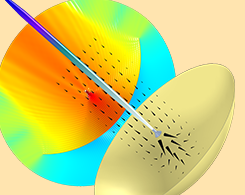
The Internet of Space Takes Off with Advanced Antenna Designs
You’ve heard of the Internet of Things, but what about the Internet of Space, which change how we share information and communicate worldwide. A key aspect of this concept: antenna designs.
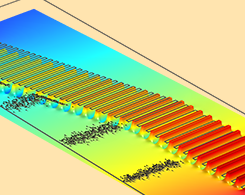
Analyzing an Electrodynamic Ion Funnel with COMSOL Multiphysics®
Quadrupole mass filters and ion mobility spectrometers are used to detect explosives, study complex biological molecules, and more. Ion funnels are an important component of these devices.
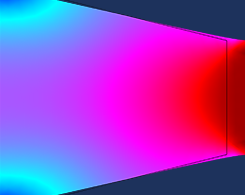
What Happens If I Use 2 Different Unit Systems in 1 Simulation?
Using 2 different unit systems for 1 project has led to historical disasters. Fortunately, you can use different unit systems in your simulation without issues by using the COMSOL® software.
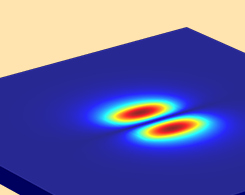
How to Model Optical Anisotropic Media with COMSOL Multiphysics®
Erasmus Bartholinus first observed the optical effect of birefringence in 1669. Today, you can observe this effect with a specialized modeling approach for optical anisotropic media.
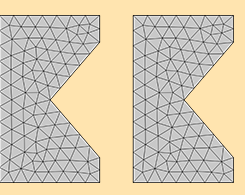
Should I Fillet the Geometry in My Electromagnetic Heating Analysis?
You want to analyze electromagnetic heating around sharp corners in your simulation. Do you round off the corners by adding a fillet? We go over cases where you should and shouldn’t do so.

Happy Birthday, Christian Doppler
The Doppler effect is observed both on Earth (such as the change in pitch when a siren passes you) and in space (such as the red shift of a planet). Learn about this phenomenon’s namesake.
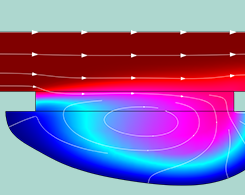
How to Model Wet Chemical Etching in COMSOL Multiphysics®
Wet chemical etching was one of Rembrandt’s favorite methods for creating self-portraits. Now, it’s used by engineers to produce integrated circuits, MEMS devices, and pressure sensors.
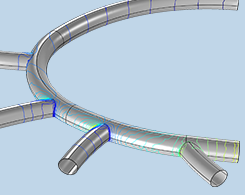
Analyzing Magnetic Flowmeters for Blood Flow Measurement
Biomedical researchers used multiphysics modeling in order to understand how blood vessel movement influences the sensitivity of their flow meter designs. Get the full story here.

Happy Birthday, Johannes Diderik van der Waals
Johannes Diderik van der Waals made many groundbreaking contributions to our understanding of liquids and gases, but his greatest passion was for education.
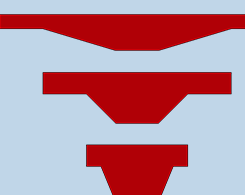
Optimizing a Microlens Design for Optogenetics Applications
Optogenetics is a field of study that could shed light on neurology and memory. To design an optimized microlens for optogenetics uses, these researchers turned to multiphysics simulation.

Award-Winning Posters from the COMSOL Conference 2017 Beijing
The COMSOL Conference 2017 Beijing featured over 70 presentations of innovative research. Read about the posters and papers that received awards.

Top Papers and Posters from the COMSOL Conference 2017 Rotterdam
At the COMSOL Conference 2017 Rotterdam, attendees presented 140+ projects featuring innovative uses of multiphysics simulation. Read about the award-winning papers and posters here.
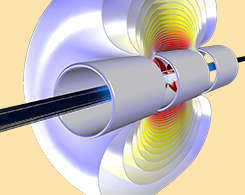
Focusing on Einzel Lenses with Particle Tracing Simulation
You can use electrostatics analysis and charged particle tracing to better understand einzel lens systems and optimize their designs.
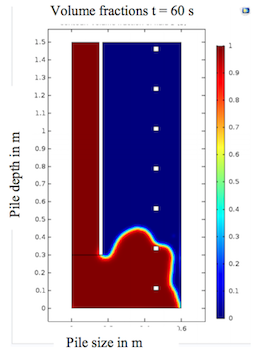
Analyzing Concrete Flow in Drilled Shafts with CFD Simulation
Researchers from the University of Florida used CFD simulation to analyze concrete flow in drilled shaft designs in order to optimize these deep foundation elements.
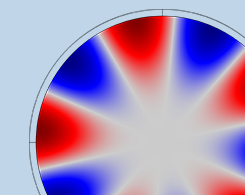
How to Use Dispersion Curves to Analyze Fluid-Filled Pipes
Modeling a fluid-filled pipe is both a time-consuming and computationally expensive process, but there’s a way to streamline the process: a guided wave propagation approach via dispersion curves.
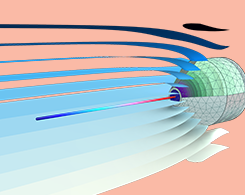
Have You Heard About the Cocktail Party Problem?
You’re at a party with loud music and a ton of people. Despite the noise, you are able to chat with a friend. How is it that you can differentiate his or her voice from all the sounds around you?

Keynote Video: Modeling the Multiphysics Behavior of Nuclear Fuel
A laboratory engineer discusses using multiphysics simulation to understand the complex and challenging behavior of nuclear fuel. Watch his presentation and get a quick summary here.
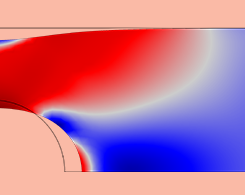
How to Implement Elastoplasticity in a Model Using External Materials
Sometimes the mechanical behavior of a material is not readily expressed in terms of a built-in model. In these cases, you can use external materials. Learn how with an elastoplasticity example.

Keynote Video: Using Simulation to Develop Reliable Audio Transducers
An engineer from a loudspeaker company discusses using simulation to design a component that can handle fatigue, environmental conditions, and user wear and tear. Watch the presentation.
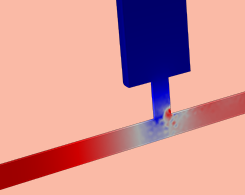
Is That a Ghost? Vibroacoustic Explanations for False Poltergeists
Creepy sounds are often misinterpreted as paranormal activity, when in fact, they can be explained with vibroacoustics, mechanical resonance, and attenuating sound.

Award-Winning Papers and Posters: COMSOL Conference 2017 Boston
The COMSOL Conference 2017 Boston featured over 100 interesting and innovative presentations from COMSOL Multiphysics® users about their current work. 6 of these projects took home awards.

Happy Birthday, Margaret Hutchinson Rousseau
Margaret Hutchinson Rousseau, the first woman to join the American Institute of Chemical Engineers (AIChE), is known for designing the first commercial penicillin plant during WWII.
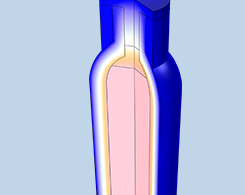
Predicting How Long Coffee Stays Warm in a Vacuum Flask
Do you use a vacuum flask to keep your coffee or tea warm? Try simulating the natural convection cooling in one of these containers to see exactly how long your beverage will stay warm.
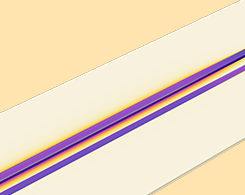
Analyzing Time-Domain Reflectometry for 2 Electrical Designs
Here are 2 examples of analyzing the signal integrity and time domain reflectometry in electrical devices: a high-speed interconnect and a set of parallel microstrip lines.
